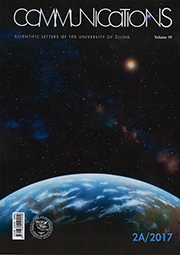The Impact of Bark Content in Wood Pellets on Emission Production During Combustion in Small Heat Source
The Impact of Bark Content in Wood Pellets on Emission Production During Combustion in Small Heat Source
Author(s): Michal Holubcik, Jozef Jandacka, Matej Palacka, Nikola Kantova, Ewa Jachniak, Petr PavlíkSubject(s): Energy and Environmental Studies
Published by: Žilinská univerzita v Žilině
Keywords: wood biomass; bark; emissions; particulate matter;
Summary/Abstract: The combustion of biomass is relatively complicated. To minimize the emission production it is necessary to ensure the optimal setting of combustion process. The article deals with the impact of bark content in wood biomass on performance and emission parameters of a small heat source. The increasing content of bark in wood biomass changes its chemical composition and parameters, namely its net calorific value, ash content, ash fusion temperature and others. During experiments samples of wood pellets made from spruce having 1, 2, 5 and 10 percent bark content together with a reference sample without any bark content were burned. The samples were burned in a hot water boiler with a rated output of 18 kW. It was found out that with the increasing bark content, the thermal output of the heat source decreases and the emission production increases, particularly the production of both carbon monoxide (CO) and particulate matter (PM). At the same time it was confirmed that with the increasing bark content the amount of ash also increases. Results showed that the burning of wood pellets with higher bark content has a more negative impact on the environment.
Journal: Komunikácie - vedecké listy Žilinskej univerzity v Žiline
- Issue Year: 19/2017
- Issue No: 2A
- Page Range: 94-100
- Page Count: 7
- Language: English

